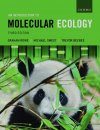Textbook
By: Graham Rowe(Author), Michael Sweet(Author), Trevor JC Beebee(Author)
535 pages, 200+ colour photos and colour illustrations, colour tables
![An Introduction to Molecular Ecology An Introduction to Molecular Ecology]()
Click to have a closer look
About this book
Contents
Customer reviews
Related titles
About this book
An Introduction to Molecular Ecology combines theoretical concepts with practice-driven examples to showcase the latest molecular and genomic techniques and their impact on the study of ecology.
The opening chapters introduce the essential molecular and genetic concepts that underpin the subject and describe key molecular tools and methods available to the ecologist. Capturing the broad scope of the field, An Introduction to Molecular Ecology goes on to explore the use of molecular tools in the context of behavioural ecology, population genetics, phylogeography, conservation, and microbial ecology.
The third edition includes coverage of exciting new technological and analytical developments, such as next generation sequencing, which have revolutionized the field over the last decade. Molecular ecology is now in a position to tackle some truly ecological questions for the first time since its inception.
Blending conceptual detail with the most instructive examples, An Introduction to Molecular Ecology is an ideal resource for those new to the subject needing to develop a strong working understanding of the field.
New to this Edition:
- New Chapter 4, 'Next generation sequencing', introduces the ongoing revolution within molecular ecology due to the widespread uptake of the still recent 'next generation' DNA sequencing (NGS) technologies
- A further two new chapters bring together some of the results of the introduction of NGS into molecular ecology; Chapter 12 looks at the sequencing of 'Genomes', whilst Chapter 13 discusses how NGS can be applied in a broader 'Genomics' context
- A series of online Journal Clubs encourage students to delve into the burgeoning primary research literature
Contents
1: Molecular ecology: roots and branches
2: Molecular biology for ecologists
3: Molecular tools for molecular ecologists
4: Next generation sequencing
5: Species, populations, and individuals
6: Behavioural ecology
7: Population genetics
8: Neutral and adaptive molecular variation
9: Phylogeography
10: Conservation genetics
11: Microbial ecology and metagenomics
12: Genomes
13: Genomics
Customer Reviews
Textbook
By: Graham Rowe(Author), Michael Sweet(Author), Trevor JC Beebee(Author)
535 pages, 200+ colour photos and colour illustrations, colour tables
"The authors of the third edition of this well-established textbook have achieved the near impossible. They encapsulate with clarity and generous illustration the breadth and excitement of contemporary molecular ecology, with substantive updates that now embrace fully the omics era."
– Professor Gary R. Carvalho, Bangor University
"This thoroughly revised and updated edition is a major advance for the field of molecular ecology. It rises to the challenge of explaining new developments and technologies with flair and clarity, and does an excellent job of synthesizing and presenting the latest results to a new generation of molecular ecologists. It is a superb teaching tool and one I plan to use when I next teach molecular ecology."
– Professor Scott V. Edwards, Harvard University
"This is a great text, providing a comprehensive and detailed explanation of how technological advances in molecular biology are used to answer questions in ecology. Students and faculty alike will find this a wonderful study tool and resource."
– Dr Sue Hum-Musser, Western Illinois University
"This book is clear, accessible, and engaging, and is perfectly suited for undergraduates. With new chapters on next generation sequencing and genomics, the third edition is an up-to-date resource for teaching and learning about molecular ecology."
– Dr Nusha Keyghobadi, Department of Biology, Western University
Reviews of earlier editions:
"The authors and the publisher deserve a round of applause for producing yet another quality textbook. I heartily recommend the book to students and teachers in diverse areas of ecology, evolution, molecular biology, etc."
– Journal of Ecobiology, 2006
"This is a unique coverage of a growing research area. The application of biological techniques into ecology, such as gene mapping and fingerprinting, has brought a welcome sophistication into the analysis of populations and their interactions. A superb introduction to the area."
– R. Davies, University of Chester, 2004.
"An excellent single text bringing together disparate but important branches of this academic subject. Well written, informative, topical, easy for students to use."
– Dr W.O.C. Symondson, Cardiff University, May 2004


































